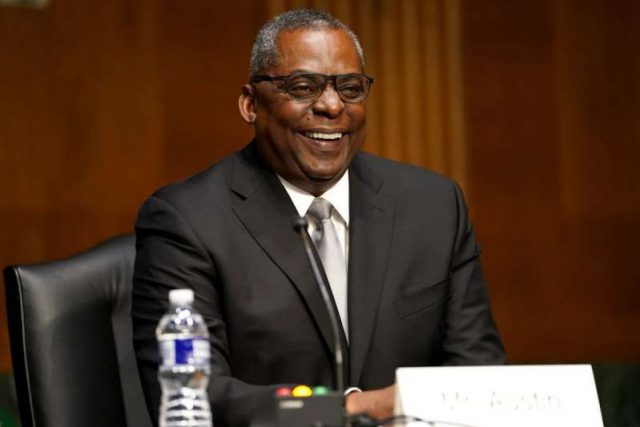
MSN News
The Senate overwhelmingly confirmed President Joe Biden’s nominee for defense secretary on Friday morning, wrapping up a speedy process to install retired Gen. Lloyd Austin as the country’s first Black Pentagon chief.
In a 93-2 vote, the Senate advanced Austin’s nomination one day after he was granted a waiver to the law that requires a nominee to be out of active duty for seven years before becoming secretary of defense. Austin retired in 2016 as a four-star Army general who in his last role led the United States Central Command overseeing all operations in the Middle East.
Austin becomes the second member of Biden’s Cabinet approved by the Senate. Director of National Intelligence Avril Haines, the first female to serve in the role, was confirmed hours after Wednesday’s inauguration as part of a push to get key Cabinet nominees quickly installed in the early days of Biden’s presidency, especially those who oversee national security matters. Senate Democrats are now looking to move quickly on Biden’s nominee Antony Blinken to helm the State Department.
Lawmakers moved swiftly to process Austin’s nomination on Thursday, clearing a number of key hurdles that helped quickly bring it to the Senate floor. Earlier in the day, the Senate Armed Services Committee advanced his nomination and waiver in a voice vote. Hours later, the House, which typically plays no role in Cabinet confirmations, overwhelmingly voted to approve the waiver and minutes later, the Senate followed suit in granting the waiver. Both chambers of Congress need to approve waivers for Defense secretary nominees who don’t meet the requirements, but only the Senate votes on actual confirmation.
While members in both parties have warned about setting a new precedent on granting waivers, the measure ultimately garnered bipartisan approval support in both the House and Senate. Austin becomes the third secretary of defense-designate to need a waiver, coming just four years after Congress approved one for former President Donald Trump’s Pentagon chief James Mattis.
Requests for a waiver have overall been rare since lawmakers strongly value prioritizing civilian control of the military and the Pentagon. The first defense secretary to receive a waiver was George Marshall, who served as President Harry Truman’s Pentagon chief in 1950. Mattis became the second nominee to require a waiver in 2017.
“I come to this new role as a civilian leader – with military experience, to be sure, but also deep appreciation and reverence for civilian control of our military,” Austin said last month when he was nominated for the position. “I recognize that being a member of the president’s Cabinet requires a different perspective and unique responsibilities from a career in uniform, and I intend to keep this at the forefront of my mind.”
Members of the Senate Armed Services Committee previously expressed broad skepticism about granting another waiver for a retired general a mere four years after the one for Mattis, including from top Democrat Sen. Jack Reed of Rhode Island, who said in 2017 he believed such exemptions should only come once in a generation.
Despite the concerns, and other scrutiny about Austin’s position on the board of defense contractor behemoth Raytheon, the former commander for conflicts in the Middle East had a relatively uneventful Senate confirmation hearing this week. And Reed subsequently expressed support for Austin’s nomination, deferring to Biden on picking the members of the Cabinet he wants.
“I hope the Senate will soon confirm former General Austin on a strong, bipartisan vote so he may begin the urgent task of leading the Pentagon, defending our country, and addressing pressing and complex security challenges,” Reed said in a statement.
Paul Shinkman contributed to this report.



